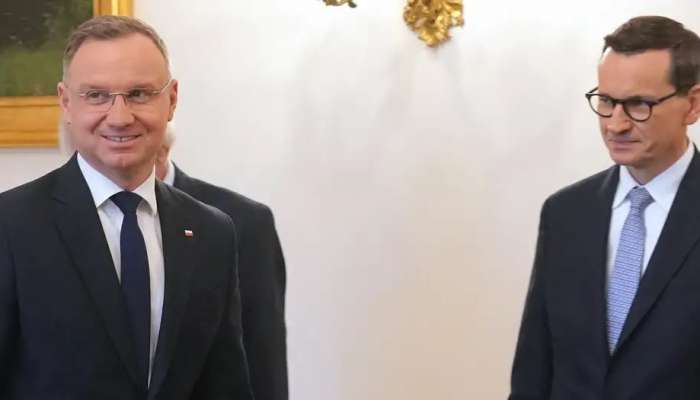
Warsaw: On Monday, both houses of Poland's parliament will convene for the first time since elections were held on October 15.
President Andrzej Duda will open the session, where lawmakers will take their oath of office and elect a speaker.
Outgoing Prime Minister Mateusz Morawiecki will then formally resign to make way for a transfer of power.
Morawiecki will likely remain in a caretaker role for as long as four weeks, however, since Duda denied the winning three-party opposition alliance — the clear winner of the October vote — the chance to form a government. Instead, he opted to give his conservative-nationalist Law and Justice Party (PiS) colleague the first move.
The PiS did win the largest single-party share of the vote in October, taking 194 of the 460 seats in the lower house, or Sejm. However, it failed to win a majority and has no coalition partners, thus leaving it likely unable to form a government.
A coalition of pro-European parties led by Donald Tusk, a former Polish president (2007-2014) and European Council president (2014-2019), won a 248-seat majority in the October vote.
Although the three coalition parties range from the left to right of the political spectrum and campaigned separately, they are united in their opposition to the ultra-conservative PiS, as well as their pro-EU positions.
Having signed an agreement stating that they are ready to govern, alliance members promise to restore democratic norms eroded by eight years of PiS rule. They seek to repair international alliances and attain the release of billions of euros in EU funding frozen due to Law and Justice's attacks on the country's justice system.
The alliance will put forth Tusk, the head of the liberal-conservative Civic Coalition (KO), as its candidate for prime minister; and Szymon Holowina of the centrist 2050 party, as candidate for speaker.
Monday will begin with Sejm members convening at noon, and the 100-member Senate gathering in the afternoon. Members of both bodies are elected to four-year terms.